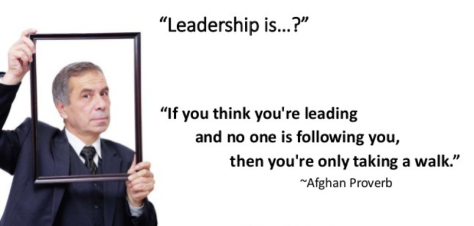
Source: (Kotter 2001)
Most of the people believe that leadership is synonymous to management but it is not. These two phenomenon have different meanings despite the fact that they go hand in hand together (Algahtani 2016).
But most of the people ponder over the different between these two terms. What exactly is the difference between them? Algahtani (2016) have pointed many difference and similarities in these two phenomenon, which have been discussed in detail throughout this excerpt.
What is Management
The management is conducted by the managers of an organization who have to shoulder the responsibility of carrying out certain tasks and controlling the people working under them (Lummus & Vokurka 1999). But this is dependent on the availability of various resources and capital which is necessary to carry out the various activities.
What is Leadership
When the people are motivated to perform a certain task or duty then that process is regarded as the process of leadership (Burns 1996). The leaders work for a certain goal and motivate their people to fulfill a certain objective (Watkins 1986).
Points of Difference between a Leader and a Manager
The managers and the leaders share a common thing; they both have to take the responsibility of the actions of the people who work under them. They are accountable for the actions of their followers (Algahtani 2016).
But there are many difference between the managers and the leaders as well. The managers are responsible for the tasks and focus on goals and tasks and the leaders have to focus on their own people (Zaleznik 2004). The management is a phenomenon which is dependent on authority whereas, leadership is dependent on motivation and trust.
A leaders is also regarded as an originator, He is referred to as the one who creates things (Kotter, 2001). But a manager on the other hand replicates the behavior of other managers in most of the cases and often as a myopic vision as well. Leaders have a farfetched vision (Zaleznik 1992). Managers have a transactional style but leaders have a transformational style of handling their followers. The major difference between the managers and the leaders have been provided in the figure below:

Source: Kotter (2001)
Figure 1
Many researchers have explained the process of leadership in a variety of different ways. Many theories have also put forward different types of leadership styles. Kurt Lewin (1930) came up with the behavioral theory which described three different types of leadership styles (Yukl, 1999).
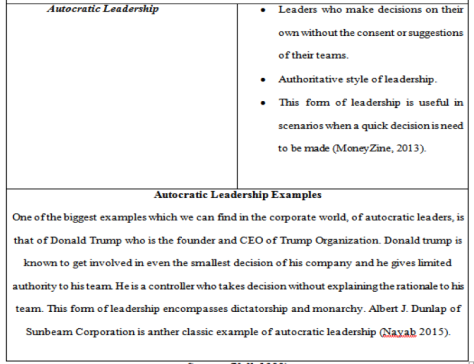
Source: (Yulk 1999)
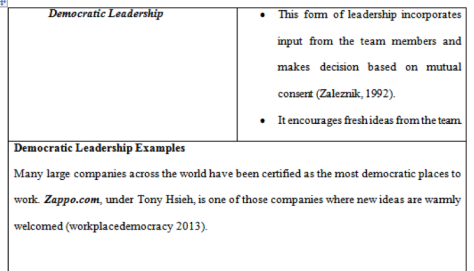
Source: (Yulk 1999)
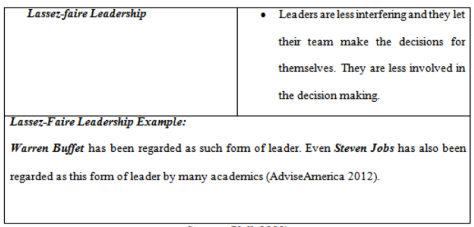
Source: (Yulk 1999)
Trait theory can also be used to understand the concept of management and leadership. According to the trait theory, the leaders have specific personality traits which can aid to influence and inspire the people. Some of these consist of the following:
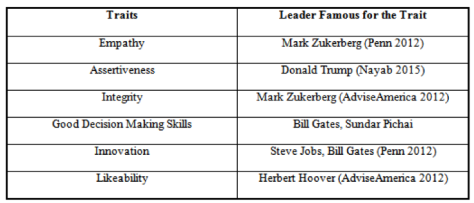
Source: (Penn 2012)
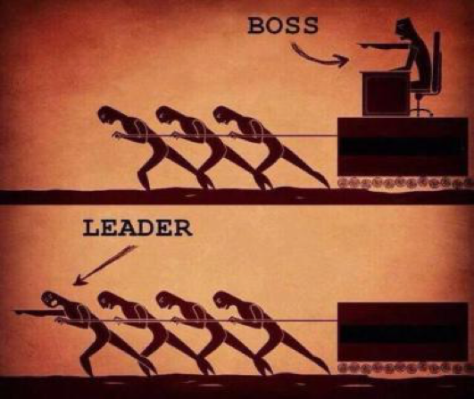
Source: (Zaleznik 1992)
Best leadership Approach
CMI (2013) have deduced that there is no perfect solution or approach of a certain problem, it only depends on the situation in which a person is. I also agree with the conclusion put forward by CMI.
It has been deduced by the theory of contingency leadership that the performance of a leader is dependent on the situation in which he is in. It has been deduced that the internal and the external factors have a very strong impact on the leader’s effectiveness (Peretomode 2016). As far as I think the contingency style of leadership is the most appropriate of all as it believes that no single leadership style is perfect, the style of leadership depends on the situation.
What kind of leadership would I want?
I perefer the contingency leadership style. According to my research, Mark Zuckerberg and Richard Branson have used this style of leadership. Mark Zuckerberg has emerged as the ultimate star of social media industry whereas, Richard Branson has created Virgin Group.
Both of these above mentioned leaders have very inspiring personality. They have empowered their employees and have motivated them. They have a highly charismatic style of leadership and have improved the performance of their company through their effective leadership skills.
For Upcoming Leaders
The upcoming leaders can get benefit from all the above theories which have been discussed above. The leaders must be influential and must have the power to inspire others.
But apart from the personality trait, the industry and type of business in which leadership is being applied is also important. For example Steve Jobs is famous as a Lassiez fare. Similarly, different leaders belonging to different industries have different styles of leadership.
Bibliography
AdviseAmerica, 2012. [Online]
Available at: http://www.adviseamerica.com/famous-laissez-faire-leaders/
[Accessed 10 March 2016].
Burns, J. S., 1996. Journal of Leadership & Organizational Studies. Defining Leadership: Can We See the Forest for the Trees?, 3(2), pp. 148-157.
Kotter, J. P., 2001. What leaders really do. s.l.:Harvard Business School Publishing Corporation..
Lummus, R. R. & Vokurka, R. J., 1999. Industrial Management & Data Systems. Defining supply chain management: a historical perspective and practical guidelines., 99(1), pp. 11-17.
MoneyZine, 2013. [Online]
Available at: http://www.money-zine.com/career-development/leadership-skill/democratic-leadership/
[Accessed 10 March 2016].
Nayab, N., 2015. Bright Hub. [Online]
Available at: http://www.brighthubpm.com/resource-management/77233-examples-of-companies-with-autocratic-leadership/
[Accessed 10 March 2016].
PennState, 2012. [Online]
Available at: https://sites.psu.edu/leadership/2013/11/10/laissez-faire-leadership-and-warren-buffett/
[Accessed 10 March 2016].
Watkins, P., 1986. A Critical Review of Leadership Concepts and Research: The Implications for Educational Administration.. s.l.:Deakin University Press.
workplacedemocracy, 2013. [Online]
Available at: http://workplacedemocracy.com/category/democratic-companies/
[Accessed 10 March 2016].
Yukl, G., 1999. The leadership quarterly. An evaluation of conceptual weaknesses in transformational and charismatic leadership theories., 10(2), pp. 285-305.
Zaleznik, A., 1992. Managers and leaders: are they different?. .
Zaleznik, A., 2004. Harvard Business Review. Managers and leaders.
Algahtani, D. (2016) “Are Leadership And Management Different?”. Journal of Management Policies and Practices 2
Peretomode, O. (2016) “Situational And Contingency Theories Of Leadership: Are They The Same?”. Journal of Business and Management 4 (3), 13
